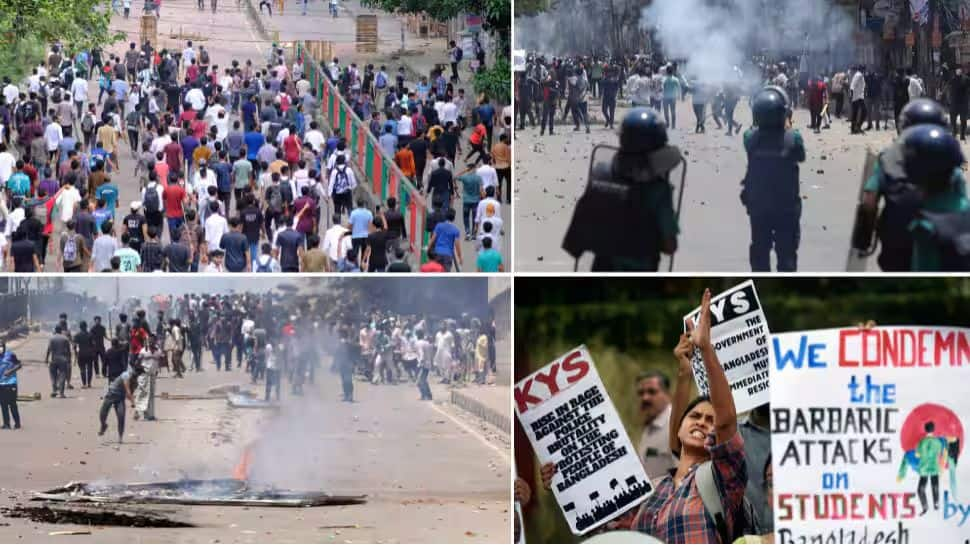Thousands of activists and leaders of the opposition Bangladesh Nationalist Party rallied in the country’s capital on Tuesday to demand a democratic transition through elections, while the interim government has yet to outline a timetable for new polls.
Supporters gathered outside the BNP headquarters in Dhaka, where they chanted slogans demanding fresh elections.
The interim government led by Nobel laureate Muhammad Yunus has unveiled a series of plans to reform various sectors of the country, from the Election Commission to financial institutions. But the main political parties, including the BNP, headed by former Prime Minister Khaleda Zia, want new elections to be held soon.
Yunus took over after former Prime Minister Sheikh Hasina fled the country during a mass uprising last month, ending a 15-year period in power. The protests began in July and morphed into an anti-government movement. Hasina has lived in India since then.
In his recent speeches, Yunus has not specified when new national elections will be held, saying he will stay in power as long as the people want him to. A team of newspaper editors recently said Yunus should first complete crucial reforms and stay in power for at least two years.
The BNP initially demanded an election within three months but later said it wanted to give the interim government time to make reforms. The country’s main Islamist party, Jamaat-e-Islami, once an official alliance partner of Zia’s party, also wants to give the Yunus-led government more time before the election.
Tarique Rahman, Zia’s heir apparent and acting chairman of the BNP, spoke online from London, where he has been living in exile since 2008. He said Tuesday that his party supported the interim government’s reform plans but that such changes would only be sustained if the people had a say in the process.
He did not specify when new elections would be held, but said any reforms must be approved in the next parliament.
“Only a free and fair election can guarantee the political empowerment of the people,” he said.
Rahman said the Yunus-led government’s reforms should focus on installing an elected parliament and a new government that politically empowers the people. “To ensure such an election, reforms must be made in the Election Commission, the civil service and security agencies to enable them to work effectively,” he said.
In other news, a Dhaka court on Tuesday allowed interrogators to question two senior journalists facing murder charges while in custody. Shyamal Dutta, editor of the Bengali-language magazine Bhorer Kagoj and former general secretary of the National Press Club in Dhaka, and Mozammel Babu, managing director and editor-in-chief of private broadcaster Ekattor TV, were arrested on Monday as they reportedly tried to flee to India. Both face murder charges related to the student-led protests. Both were known to be close to Hasina.
More than 150 journalists have faced charges including murder and crimes against humanity since Hasina’s fall from power, prompting criticism from groups including Paris-based Reporters Without Borders (RSF) and Human Rights Watch.
After two more journalists were arrested last month and more cases were brought against others, RSF demanded that these cases be stopped.
“The purge of journalists considered sympathetic to the previous government has reached a new level. Media professionals are the most affected by the need for revenge that permeates this terrible legal cabal, which is damaging the image of the ongoing political transition in Bangladesh,” said Antoine Bernard, RSF’s director of advocacy and assistance.
“The interim authorities, led by Nobel Peace Prize laureate Muhammad Yunus, must do everything in their power to put an end to this perverse process,” Bernard said.
Meenakshi Ganguly, deputy director of the agency’s Asia division, told The Associated Press last month that it was “extremely worrying that the justice system is repeating its abusive and partisan behavior since the fall of (Hasina’s) Awami League government, with arbitrary arrests and failures of due process, simply turning back those targeted for arrest.”
Disclaimer:
The information contained in this post is for general information purposes only. We make no representations or warranties of any kind, express or implied, about the completeness, accuracy, reliability, suitability or availability with respect to the website or the information, products, services, or related graphics contained on the post for any purpose.
We respect the intellectual property rights of content creators. If you are the owner of any material featured on our website and have concerns about its use, please contact us. We are committed to addressing any copyright issues promptly and will remove any material within 2 days of receiving a request from the rightful owner.

